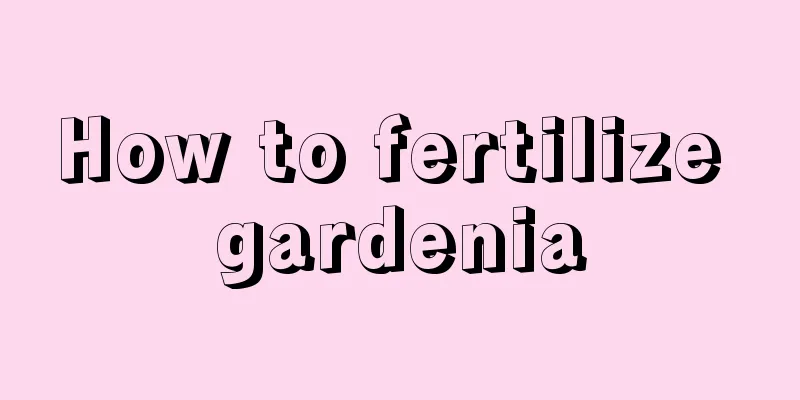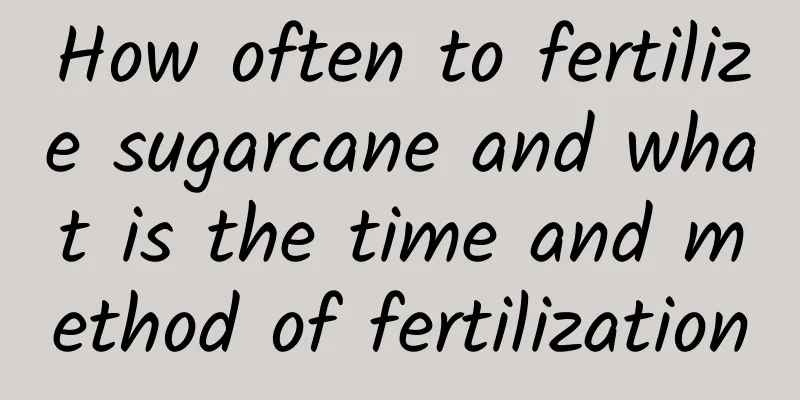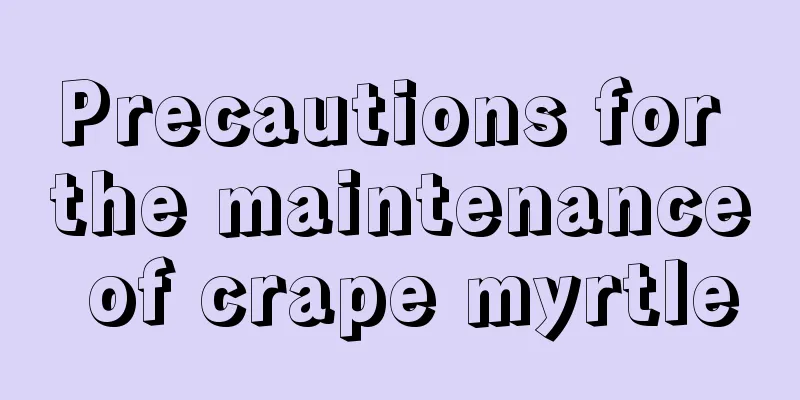How to fertilize gardenia

Fertilization methodApply sufficient base fertilizerIf gardenia grows slowly, has weak branches, and needs frequent topdressing during maintenance, it means that there was insufficient base fertilizer during planting. Before planting gardenias, add organic fertilizer (rotted animal manure, cake fertilizer) to the soil and mix it evenly. Apply slow-release fertilizerIn fact, most families grow flowers but fertilize them rarely or even take care of them often. To save time and effort, agricultural scientists have developed a lazy fertilizer - slow-release fertilizer. Apply fertilizer in the pot, and the fertilizer will be released slowly. There is no need to worry about damaging the plant by applying too much fertilizer. However, stop fertilizing after October and during flowering. top dressingFrom April to October, apply fertilizer once a month except during the flowering period. Starting in April, spray potassium dihydrogen phosphate once a week until flower buds appear on most branches of the gardenia. Watering the roots twice with potassium dihydrogen phosphate after budding can enhance the plant's resistance to stress and promote large and fragrant flowers. But as soon as the flower buds crack and turn white, stop fertilizing. Repotting and fertilizingIf you repot the plant, place it in a cool place to acclimate, and then apply fertilizer after the acclimatization period. PrecautionsThe soil should be loosened the day before fertilizing to facilitate the plant's nutrient absorption and achieve the best fertilizer effect; water the soil the day after fertilizing to avoid fertilizer accumulation in the soil and cause fertilizer damage. When applying fertilizer, you need to keep in mind these time points: fertilize after the beginning of spring, and do not fertilize after the autumnal equinox; fertilize when the flower buds are present, and do not fertilize when the buds crack; fertilize on a sunny day before the rain, and do not fertilize after the rain; fertilize when the soil in the pot is dry, and do not fertilize when it is wet; apply thin fertilizers frequently, and do not apply thick fertilizers; fertilize before and after flowering, and do not fertilize during flowering; apply fertilizers in the morning and evening, and do not fertilize at noon; fertilize more for strong seedlings, and do not fertilize for weak seedlings. |
Recommend
What are the effects of dandelion?
1. Clearing away heat and detoxifying From a medi...
Are lilies poisonous when placed indoors?
1. No toxicity Lilies are not poisonous. However,...
Is fishtail palm poisonous? Can it be grown indoors?
1. Is it poisonous? It is poisonous, and the pois...
What to do if strawberry vines only grow but don't bloom
1. Control nitrogen fertilizer The reason why str...
Increase your luck during the holidays by putting out these 3 kinds of lucky flowers to create a joyful atmosphere!
1. Good fortune The name of the flower, "Luc...
What are the poisonous flowers?
1. Oleander The whole plant of oleander is poison...
How many years does it take for round jujube to bear fruit? How long does it take for it to bear fruit?
The fruit of round jujubes after several years of...
Miracle fruit cultivation methods and precautions
1. Maintenance methods 1. Soil: Miracle fruit doe...
How to grow money string fast
1. Proper lighting Money tree loves sunlight very...
Cultivation methods and precautions of water lilies
1. Water depth and water quality For water lilies...
How to grow cabbage?
Cabbage , known as the "king of vegetables &...
Advantages and disadvantages of the Autumn Dance Rose
The pomegranate flower autumn dance rose is a min...
What causes the leaves of the golden diamond to rot?
1. Excessive watering Reason: Diamondwood likes m...
Maintenance methods and precautions of Kalanchoe
Kalanchoe is a very popular indoor flower with th...
Breeding methods and precautions of Guangdong Evergreen
1. Soil It is recommended to choose acidic loam w...









